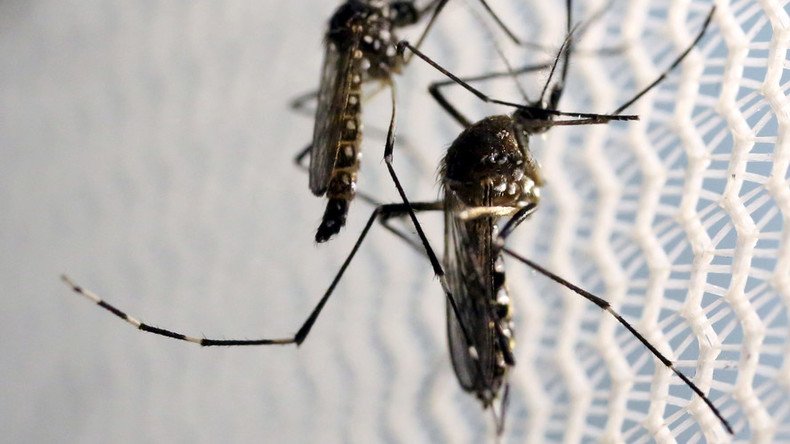Cure? British scientists breed Zika-preventing mosquitoes

A team of British scientists based in the UK and South America have developed a type of mosquito, which could be used to eradicate the Zika virus by limiting the reproductive ability of the disease-carrying insects.
Oxitec, the company which has been developing the treatment, have bred male Aedes Aegypti mosquitoes which pass on faulty genes, meaning that if they manage to mate with Zika-infected females, the offspring won’t be able to reproduce, halting the spread of the disease.
An outbreak of Zika in Central and South America has seen thousands of people infected. Zika itself is not deadly, but if it is caught by a pregnant woman her unborn child could develop microcephaly, which causes the brain and skull to develop abnormally, resulting in a small head.
Couples in Britain have been warned not to try for a baby for at least a month if either of the partners has been to any of the 23 infected countries.
In an interview with the Independent, Oxitec CEO Haydn Parry said his company could eradicate the infected mosquitos from Brazil.
“We could do it,” he said.
“If someone said that [ridding Brazil of Aedes Aegypti] is the plan, you would get on with it … but someone has to say, ‘I’m up for it, I’ll pay for it. What help do you need?’”
The modified mosquitos stop the rate of reproduction of the insects dramatically. Normally one infected female can produce 500 more infected mosquitos over the course of its month-long lifespan. They in turn could produce 125,000 infected insects during their lives.
However, Parry noted that targeting only infected females would be difficult.
“On the other hand, if you release 100 of our males, those males are going to go anywhere, and go and find the girls, because that’s what males are very good at.”
Initial tests by the company in Panama, the Cayman Island and Brazil, have resulted in a 90-percent reduction in the number of Aedes Aegypti mosquitos.
The World Health Organization say the technology would not pose a threat to the environment, and Oxitec scientists have suggested that eradicating the insect would leave the ecosystem almost intact. But critics say the genetically modified mosquitos threaten the natural world, and suggest authorities develop a vaccine for Zika instead.
“These people have spent months and years evaluating it,” Parry said.
“It’s a shame that a solution that could save a lot of lives is being questioned by some idiots.”













